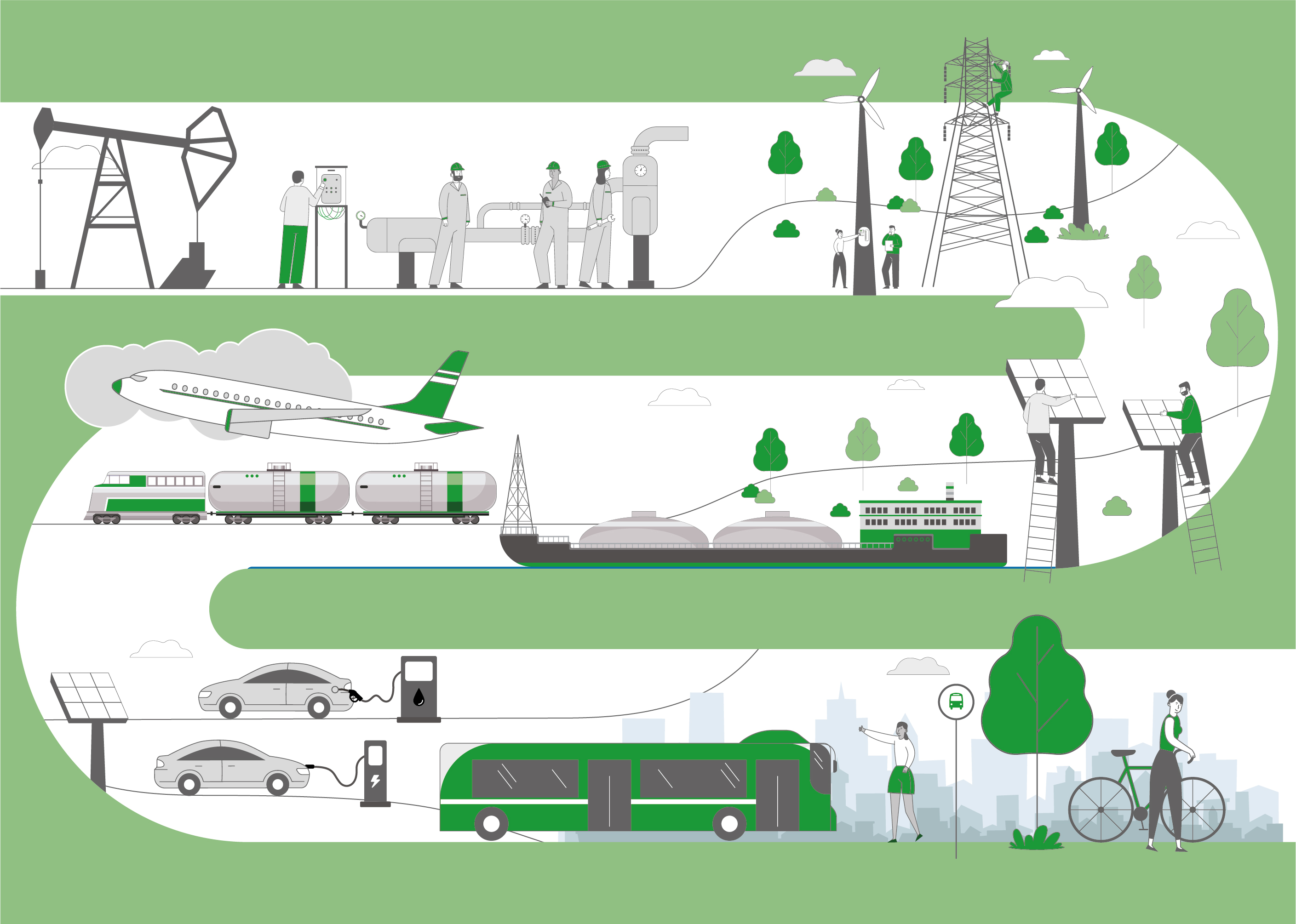Energy Transition

Energy transition will never be a straight path. The trajectory of moving from fossil-fuel dependence toward lower-carbon options and carbon-neutral environments is influenced by a variety of factors, including technological advances, economic conditions, ESG priorities and geopolitical developments.
The ripple effects that world events can have on energy-transition plans are on display in real time through Russia’s invasion of Ukraine. It has triggered economic and trade sanctions against Russia and its energy industry. Countries and trading blocs that previously relied on Russian oil and gas are being forced to find new suppliers and trading partners. Consumers face high prices and supply cutoffs as a result of these sanctions. Countries could increase production of fossil fuels on a temporary basis and delay progress on carbon reductions as required in international treaties.
In light of these developments, more governments are likely to see energy transition as a solution for energy security. If a country can produce enough energy from its own renewable sources, it lessens its dependence on fuel imports. Other strong forces, including the corporate responsibility movement, continue to propel the transition to clean energies.
Explore the themes
More from our team

